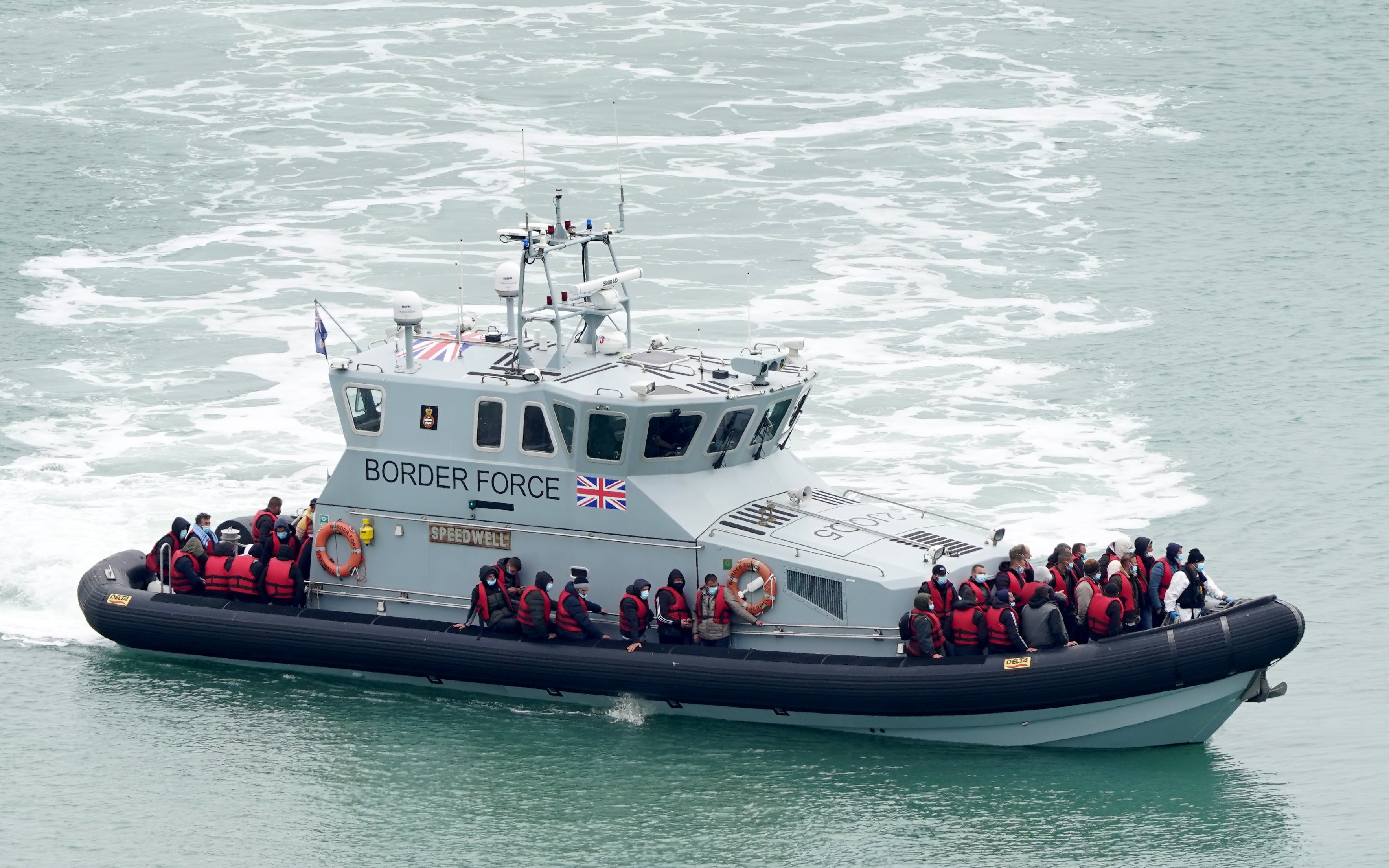Channel crossings hit 7,000 for the year so far
It is more than three times the number recorded for the same period in 2021 and more than seven times the amount recorded at this point in 2020.

Your support helps us to tell the story
From reproductive rights to climate change to Big Tech, The Independent is on the ground when the story is developing. Whether it's investigating the financials of Elon Musk's pro-Trump PAC or producing our latest documentary, 'The A Word', which shines a light on the American women fighting for reproductive rights, we know how important it is to parse out the facts from the messaging.
At such a critical moment in US history, we need reporters on the ground. Your donation allows us to keep sending journalists to speak to both sides of the story.
The Independent is trusted by Americans across the entire political spectrum. And unlike many other quality news outlets, we choose not to lock Americans out of our reporting and analysis with paywalls. We believe quality journalism should be available to everyone, paid for by those who can afford it.
Your support makes all the difference.More than 7,000 migrants have arrived in the UK after crossing the English Channel this year so far, figures show.
Since the start of 2022, 7,240 people have reached the UK after navigating busy shipping lanes from France in small boats, according to analysis of government data by the PA news agency.
This is more than three times the number recorded for the same period in 2021 (2,390) and more than seven times the amount recorded at this point in 2020 (1,006).
Crossings resumed this weekend, with more than 500 people arriving in Kent over two days, after an 11-day stretch between April 20 and April 30 without any taking place amid bad weather conditions.
Some 293 people made the crossing to the UK in nine boats on Bank Holiday Monday after 254 in seven boats arrived on Sunday, according to Ministry of Defence (MoD) figures.
In April, there were nine days of crossings and 2,143 people arrived in the UK as a result.
The highest daily total for 2022 was recorded on April 13 when 651 people made the crossing in 18 boats.
A record 1,185 people made the crossing to the UK on November 11, 2021 – the highest recorded so far since the start of 2020.
A total of 28,526 people made the crossing in 2021, compared with 8,466 in 2020, 1,843 in 2019 and 299 in 2018, official Home Office figures show.
Despite the increasing numbers, the UK’s small boat arrivals are a fraction of the number of people arriving in Europe.
Data from the UN’s refugee agency shows at least 120,441 people arrived in Europe via the Mediterranean by land and sea in 2021.
According to The Times, Calais MP Pierre-Henri Dumont said the millions of pounds Britain has given to France to stop Channel crossings is a waste of money.
He is quoted in the newspaper as saying: “I strongly believe that we need to exit the relationship that we have right now with the UK, which is basically the UK is giving us money to do the job, because it makes both sides of the Channel angry.”
Mr Dumont also reportedly warned the Government’s plan to send migrants to Rwanda could risk causing more deaths as people attempt other, even more dangerous routes to the UK to avoid detection.
Refugee charities claim the Rwanda policy has done little to deter people from making the journey to the UK but a former Border Force boss said it is too soon to tell if news of the plan is helping to curb Channel crossings.
Earlier this month Home Secretary Priti Patel signed what she described as a “world-first” agreement with the east African nation, which will see it receive asylum seekers deemed by the UK to have arrived “illegally” and therefore inadmissible under new immigration rules. But the deal was met with criticism and is already facing legal challenges.
Some 1,972 people arrived in the UK after crossing the Channel between April 14 – when the Government announced and signed the Rwanda deal – and May 2.
The Government previously indicated that the first flights to Rwanda could take off within the coming weeks and months, amid reports that Prime Minister Boris Johnson wanted to see movement by the end of May.
But it is understood a date is yet to be set for when the policy will come into force while the Home Office addresses the legal cases.
We still maintain our hope to have the first flights take place in a matter of months
It comes as the Nationality and Borders Bill – dubbed the anti-refugee Bill by campaigners as it makes it a criminal offence to knowingly arrive in the UK illegally and includes powers to process asylum seekers overseas – became law.
Downing Street acknowledged it could be months before any migrants arriving in the UK were sent on a one-way trip to Rwanda, with legal challenges highlighted as one of the “variables” affecting the plan.
The Prime Minister’s official spokesman was unable to say when the first flight would be, adding: “We have received pre-action correspondence from a number of legal firms, I can’t get into that more… but we still maintain our hope to have the first flights take place in a matter of months.”
But he insisted the plan was a “fully legally secure approach that has been tested and thought through” and that the Government was not waiting for legal cases to be resolved before even starting flights and that these would take place “at the earliest opportunity”.
Asked if Mr Johnson was disappointed the plan had not deterred people from crossing the Channel, the spokesman said: “It’s too early to judge what the situation will be long term on this policy.”